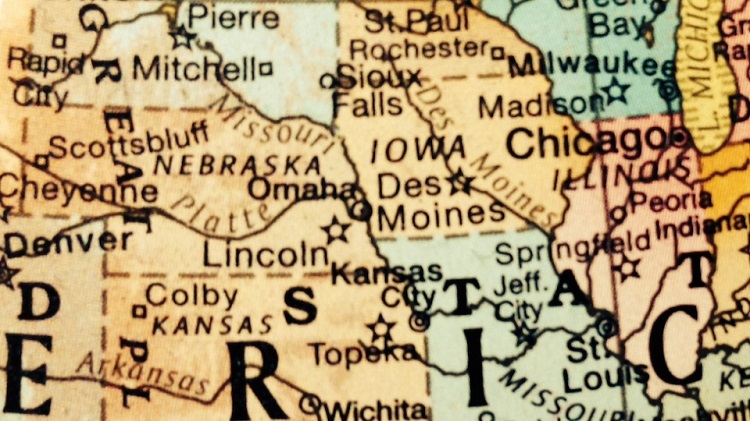
Outsiders tend to dismiss the Midwest as "flyover country" or to idealize it as "the heartland." A new academic journal launched in early September by the University of Nebraska Press aims to take a closer look at the culture of the Midwest and what distinguishes the region from the rest of the country.
The Middle West Review will publish historical research, sociological and cultural studies and even poetry and prose, said editor Paul Mokrzycki, a doctoral student in history at the University of Iowa.
"As long as it advances our knowledge and understanding of the Midwest, we're willing to consider it," Mokrzycki said.
The peer-reviewed journal appears to be the only existing academic journal that studies the Midwest, said UNP's Joyce Gettman. The Great Plains Quarterly, published by the Center for Great Plains Studies in partnership with UNP, has a similar mission but focuses on the Plains states and Canada’s prairie provinces. The Middle West Review's geographical purview extends as far east as Michigan and Ohio.
According to an Associated Press report on the new journal, the last true Midwest history association was the Mississippi Valley Historical Association, created in 1907 in Lincoln. That group fizzled out in the 1960s and was replaced by the Organization of American Historians, which does not focus on Midwest history. Though other regions have historical journals, like the Journal of Southern History or the Western History Association Journal, there has not be a journal dedicated to the history of the Midwest for decades.
"Unlike the South, the West and the Northeast, the Midwest is a chronically understudied area," wrote Matthew Wolfson, a New York writer and Illinois native, in an essay published in March by the New Republic.
Wolfson's essay mentioned that interest in Midwestern history and identity appears to have revived recently, with at least three books published in the past year: "Flyover Lives," a memoir by novelist and critic Diane Johnson; "The Hard Way on Purpose: Essays and Dispatches from the Rust Belt," by Ohio journalist and professor David Giffels; and "The Lost Region: Toward a Revival of Midwestern History," by South Dakota historian Jon K. Lauck.
Lauck is an associate editor for the new journal. Jason A. Heppler, a doctoral student in history at UNL, is among those who serve on its editorial board.
Mokrzycki said he became interested in Midwestern identity last fall while conducting historical research into the disappearances of Des Moines paper boys Johnny Gosch and Eugene Martin in the early 1980s. He noticed that news accounts often dsecribed the disappearances as "something that shouldn't happen here."
"I didn't find this Midwestern conception of peacefulness in my other research on child abductions in the 1970s and 1980s," he said. "I wanted to draw on secondary material to learn more about this perception of Midwestern innocence, but found there has been very little written on Midwestern identity."
He initiated a digital history project and the Midwest History Working Group, soliciting scholarly works to be published on the web. UNP got wind of the effort and agreed to produce, market and distribute the journal, which is available via subscription at an individual cost of $40 per issue.
The 180-page inaugural edition features eight peer-reviewed articles, 18 book reviews and an interview with 94-year-old former University of Wisconsin-Madison history professor Allan Bogue. For more information about the Middle West Review, click here. For subscription information, visit http://go.unl.edu/e6yx.
— Leslie Reed, University Communications